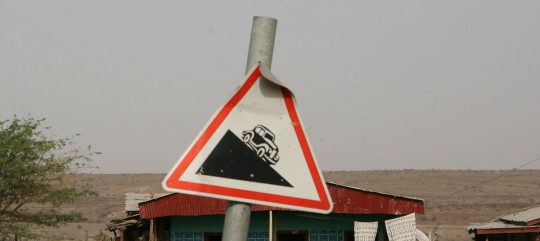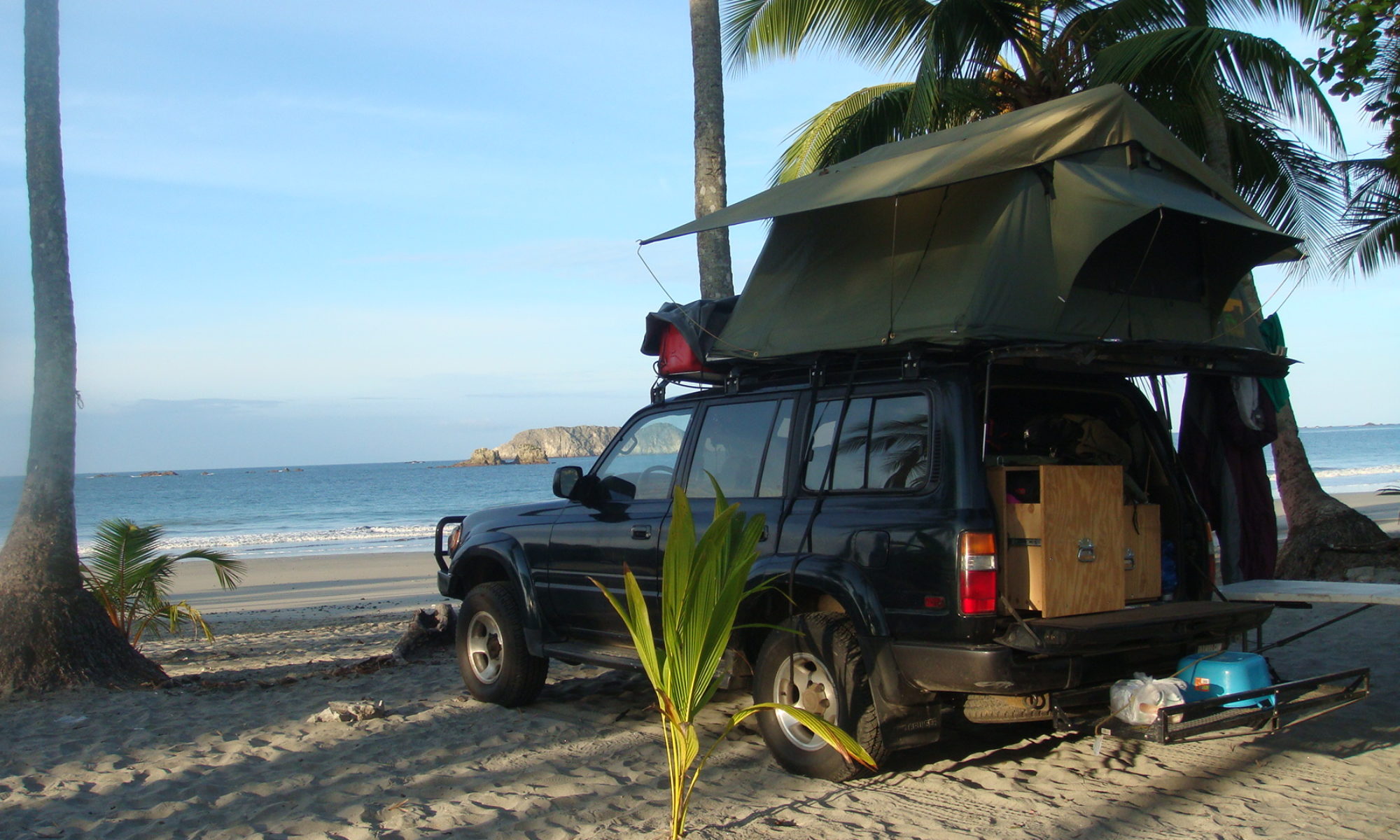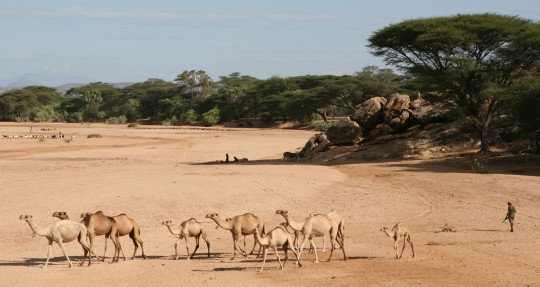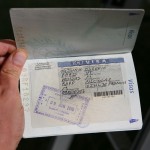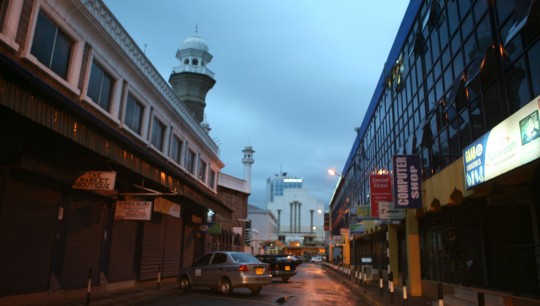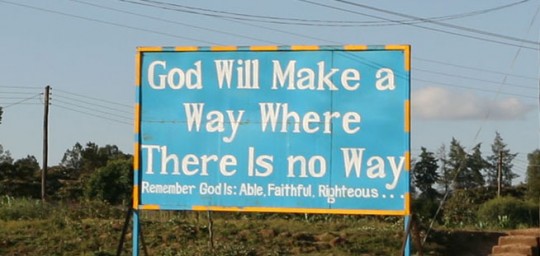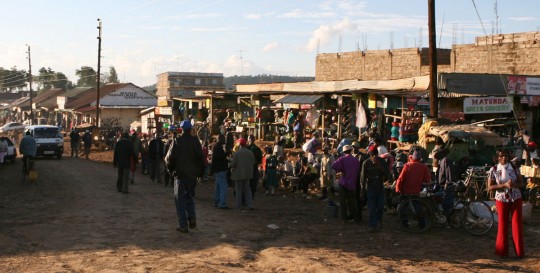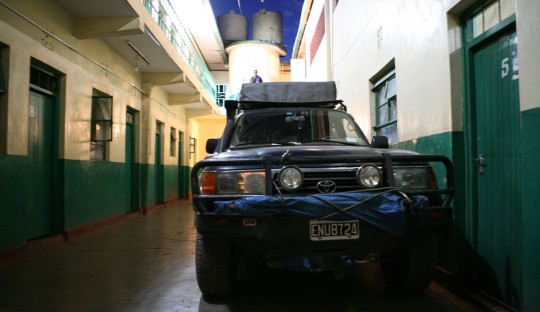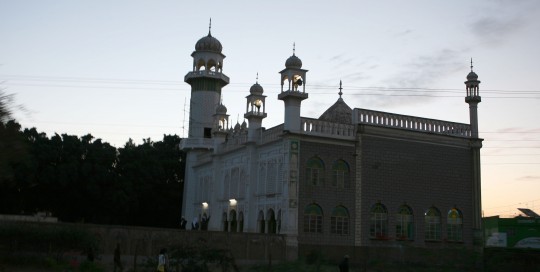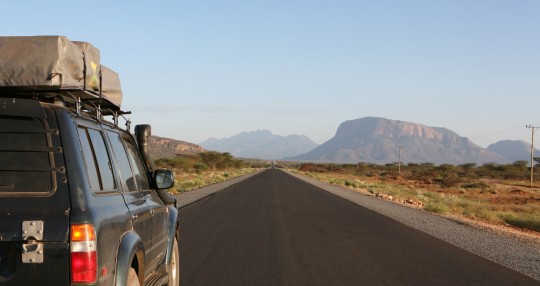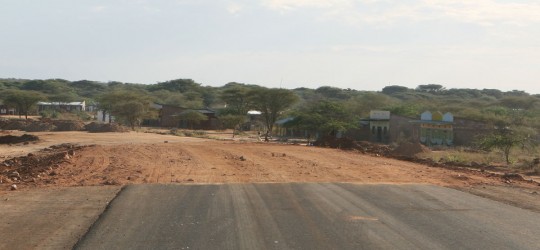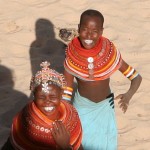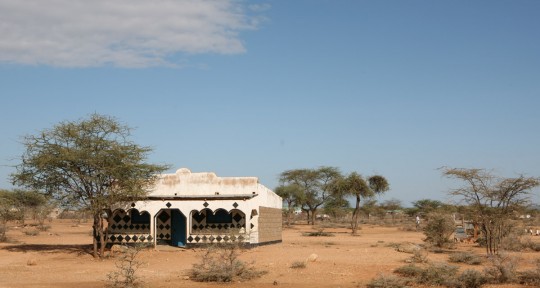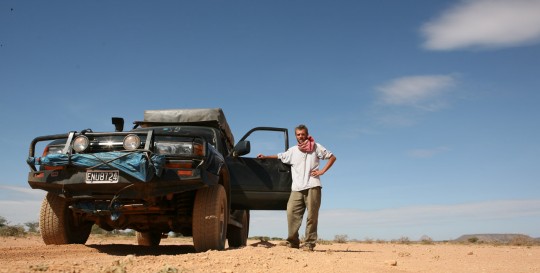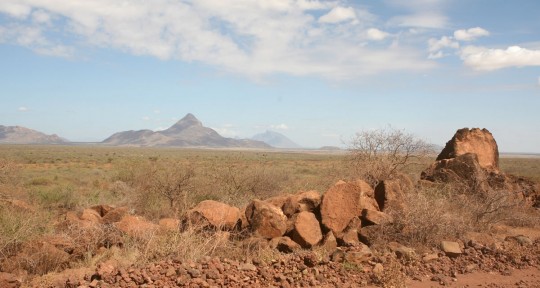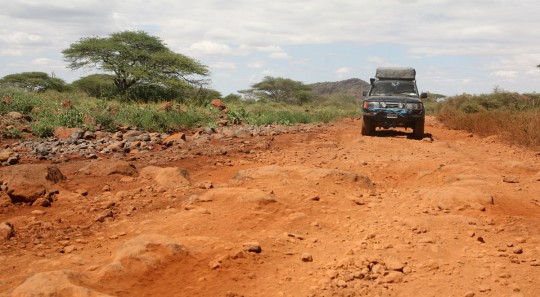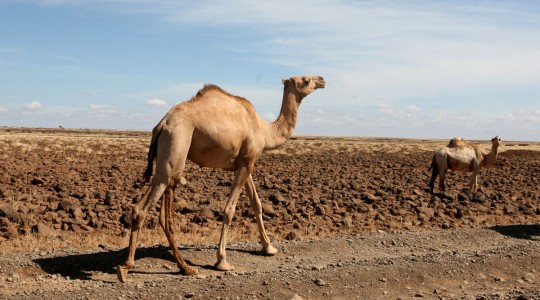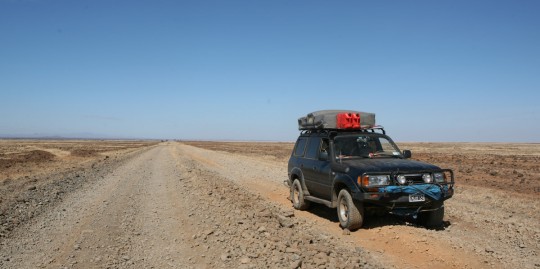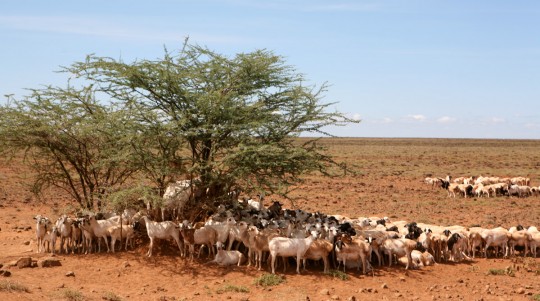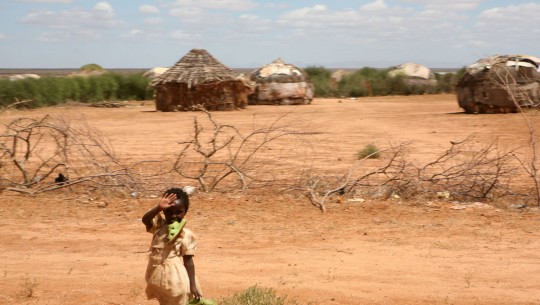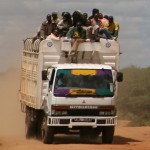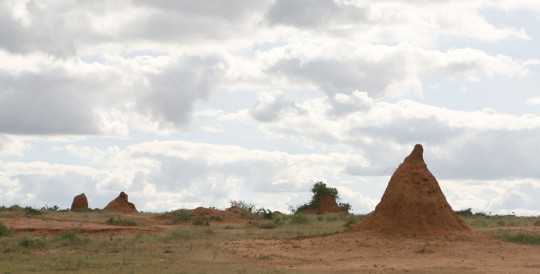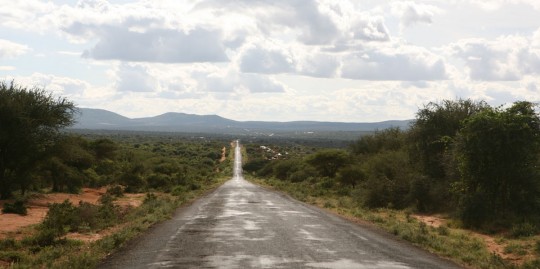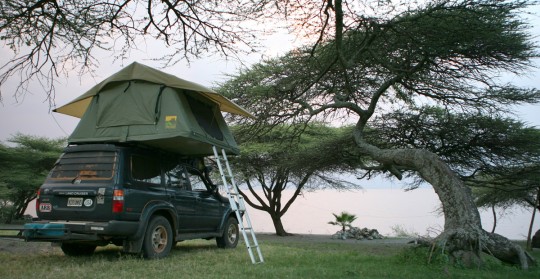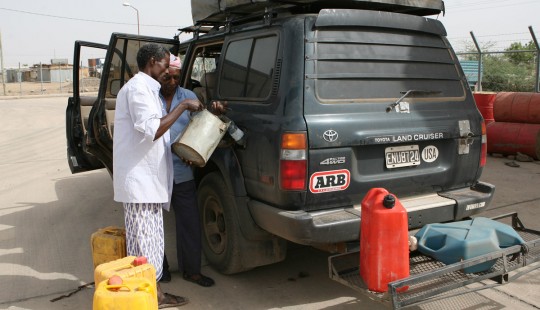
The last week has been one of the most difficult since I arrived in Africa. Once again, what was supposed to be a straight forward affair – going from Ethiopia to Djibouti – turned out into a nightmare.
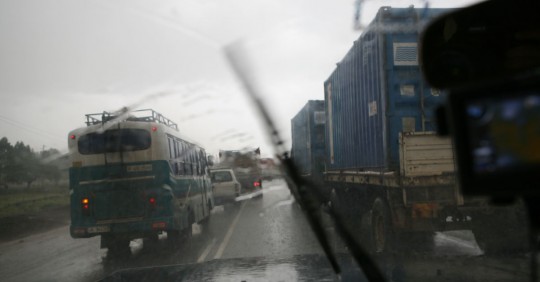
The road going to Addis Ababa, the capital of Ethiopia, was an easy road, if you let on the side the perpetual danger of animals and human in the middle of the road. Ethiopians, like Kenyans, are driving like there is no tomorrow, and you have to be extra vigilant while driving.
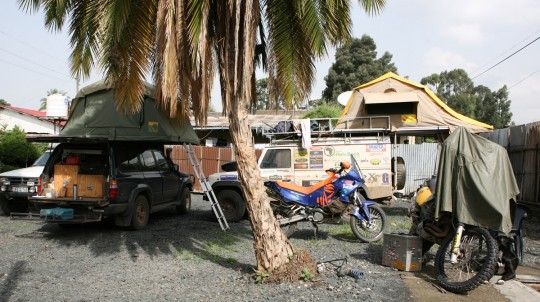
In Addis, I had a very pleasant time at Wim’s Holland House, a campsite located in the center of the city. The place serves as a meeting point for all the overlanders using the east road to cross Africa. A bunch of people, mostly Europeans, spend time here waiting for visas, spare parts for their vehicles, or just to rest, drink beer and watch the World Cup. I watch the disappointing performance of the French, and I am the only one on the American side while they play, with many British bikers around. Addis is an OK place, and you can easily walk in the city, if you don’t mind people constantly asking you for money.
After a couple of days here, I decided to leave and get to Djibouti. Under the impression that French citizens don’t need a visa to go there, I didn’t bother stopping by the embassy.
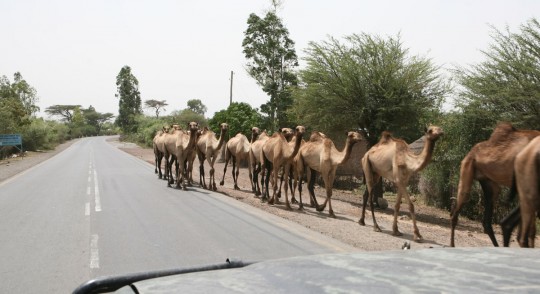
It is a two-day journey across the desert to get to the border. Two roads are going to Djibouti. One of them is very good and used by many trucks. The other one is a terrible gravel road. Of course I did choose the first option, and left Addis happy, not suspecting I will end up not only taking the first road, but also the second, with no success whatsoever in getting to Djibouti.
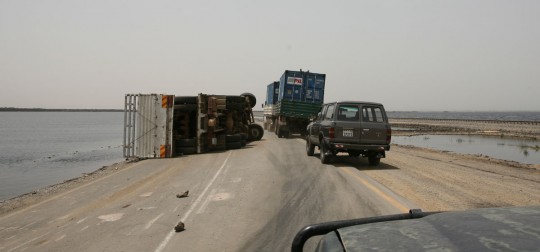
I thought I knew bout hot weather. I didn’t. It was horrible to cross the desert. The temperature was horribly high, at around 45C, the air hazy, no shade anywhere, and a strong wind was blowing boiling air. The sky was gray, and the sun seemed huge.
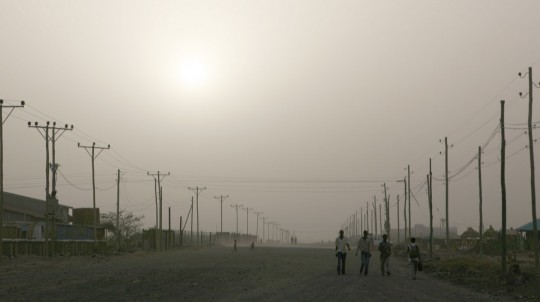
I traveled with my head wrapped in a towel, and windows closed to avoid the hot wind. I have no AC in the truck, and doubt it would have helped. The temperature didn’t go down at night, and the wind shook the tent endlessly, making sleep impossible.
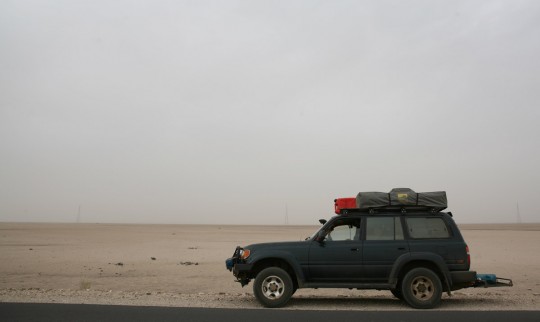
The following day I made it to the border, barely alive. I drove for about 600 miles (1,000 km), and you can imagine my disappointment to learn from the immigration officer that I would not be allowed in the country. If you do fly into the country, you automatically get a visa, but it is another story when traveling by road.
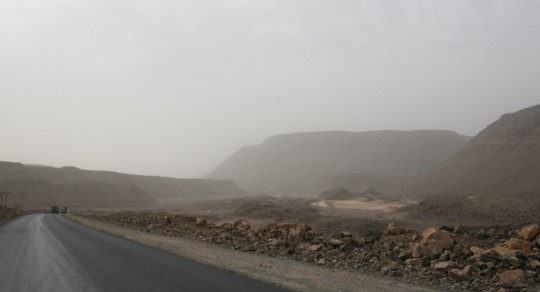
Of course, as you can imagine, I did everything I could to have the officials let me get into the country. I begged them for hours, spent 24 hours lobbying them, even sleeping in front of the immigration building. I tried everything with no success. I had no more Ethiopian money, and had to pay US$10 to place two calls to the French embassy in Djibouti, only to have to hear that they didn’t care about my case.
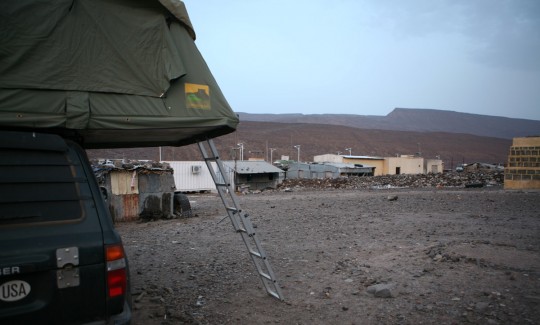
So this horrible trip was done for nothing. I was suffering now from heat exhaustion, and had to keep moving. The immigration officer mentioned to me that there may be a way to Djibouti through tracks in the desert. After going back south 200 km (125 mi), I tried the track, shown on no maps.
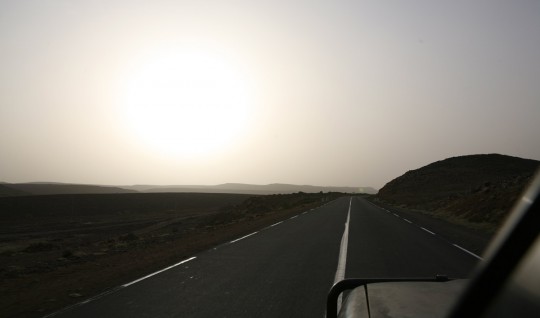
I have to admit, I was really afraid to take this direction. If I had any mechanical problem, I would be in the middle of nowhere, risking the worst in the extremely hostile environment. Unfortunately, or fortunately, the track finished with a collapsed bridge after 60 km (38 mi). Once again I had to backtrack.
The next solution was to try to drive back south-east and go to Dire Dawa to get a Djibouti visa at the consulate there. Another two-day trip.
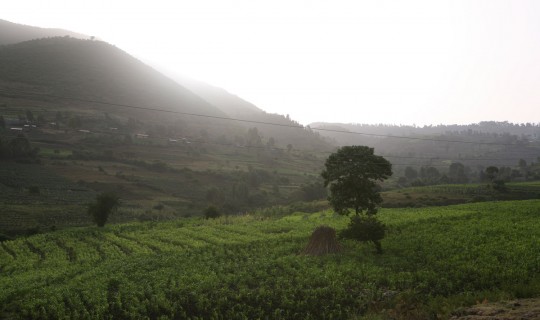
After one day of driving, I was back in a colder area, a hilly region where tea and coffee grow. I had a nice fresh night, unfortunately just on the side of the road, as I could not find a proper area to camp. A shower would be a dream after all these days.
Late morning, I was showing up happy at the Djibouti consulate in Dire Dawa, taking for granted I would have no problem getting my visa. “But”, I was told, “the consul is in Djibouti, and will only be back in a week”.
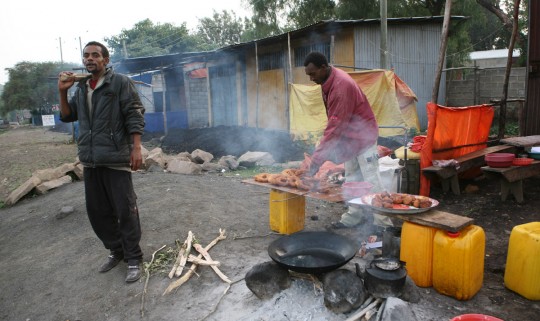
Of course he was the only one who could sign for the visa. Another lost fight. The consulate employee advised me to go to the border, and explain the immigration officials my situation. Surely, she told me they will let me through. At this effect, I had to get to the second border crossing at the end of a terrible 250 km gravel road.
It took six hours to complete this road. The heat was terrible again, and the gravel on the road was so sharp it took a real toll on my tires. I was able to fix two puncture, but one of the back tire exploded, making necessary the use of my spare wheel. No there was no space for mistakes. If another tire blew, I will be stuck there forever. In addition, the area was not very safe, and as I was changing the tire, a group of Somali illegal immigrants, roaming the desert, took an interest in my possessions and gather around the truck, trying to put their hand on anything they could. I was constantly locking and unlocking the doors to grab tools and work under the truck. This episode I will remember as being one of the few times I felt in danger since the beginning of the trip.
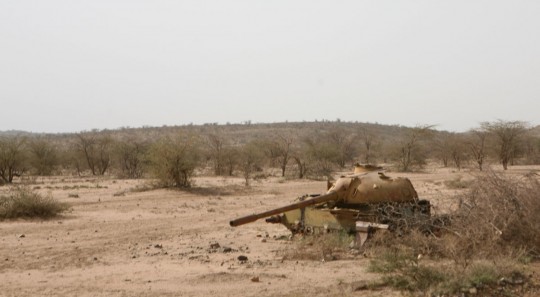
But I made it to the border alive, driving as slow as 30 km/h (20 mph) to avoid a will be catastrophic tire blow up.
Of course I was decidedly in no luck, and this time Ethiopians officials kicked me out of the border area, in no gentle way, asking me to please get lost. They would no let me speak to the Djibouti officers, arguing I had no visa and had to go back.
In rage, and in the middle of the night, I decided to turn back and drive the entire dirt road back to Dire Dawa. There was anyway no way of sleeping anywhere in the desert where I would have been exposed to Somali gangs.
At 4 a.m. I was back in the city. The trip going back was slow, as I just went easy and slow, listening to an audio book, smoking Yemeni cigarettes and trying to not let the adventures of the week get to me. When you are alone and face all these difficulties, it is hard to not be down and suffer for the lack of luck. I know that failing is not an option, but this week, for the first time, I did wonder at times why in the world I would have left the comfort of my life to end up in such place and situation…
Exhausted, I slept few hours behind the wheel and woke up at 8:30 a.m., surrounded by people looking at me.
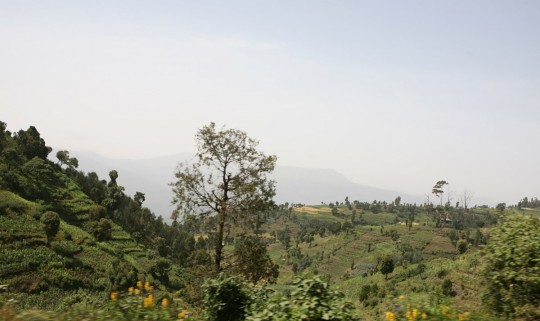
I started the truck, and drove back all the way to Addis where I arrived at 5 p.m. I will have to buy new tires there, as mine are in poor shape. My shock absorbers look like they are gone as well, with oil leaking out of them. Because of the heat, one of my car batteries is dead for good I believe, and some other electronic equipment like the GPS or even my iPod suffered greatly as well. I am in poor shape myself, feeling sick in the last two days, probably another consequence of the unsupportable temperatures. I had to unplug the fridge, which couldn’t make it anymore. In addition, I wasted hundred of dollars in fuel trying to get to Djibouti.
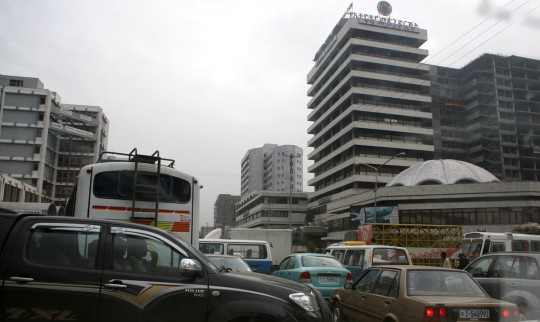
I imagine I will be pretty busy this next week. I plan to get the most urgent things fixed on the truck, and get few visas. The ideal will be to get Djibouti, Yemen and Saudi Arabia visa, so I will not have to worry about it later on.
So as you may have understand, the last week has not been easy. I will need a little bit of luck and some good news soon to overcome all the difficulties and do more than just try to survive.
